Category: Sustainability
We are delighted to share that Masterpress has maintained its EcoVadis silver medal in May 2025, a recognition of our steadfast commitment to sustainability and responsible business practices. Even more exciting, we’ve achieved a placement in the 92nd percentile, positioning us among the top 8% of companies rated by EcoVadis.
EcoVadis, a globally trusted provider of business sustainability ratings, evaluates companies based on their environmental, social, and governance (ESG) performance. This continued recognition reflects our dedication to:
– Reducing our environmental footprint
– Upholding ethical labor and business practices
– Prioritizing sustainable procurement
We’re incredibly proud of this milestone and extend our deepest gratitude to our employees, partners, and stakeholders. Your support and collaboration have been instrumental in driving our success.
Looking ahead, Masterpress remains committed to pushing the boundaries of sustainability and creating a positive impact on the world. Together, we’ll continue to innovate and lead with purpose.Thank you for being part of our journey!
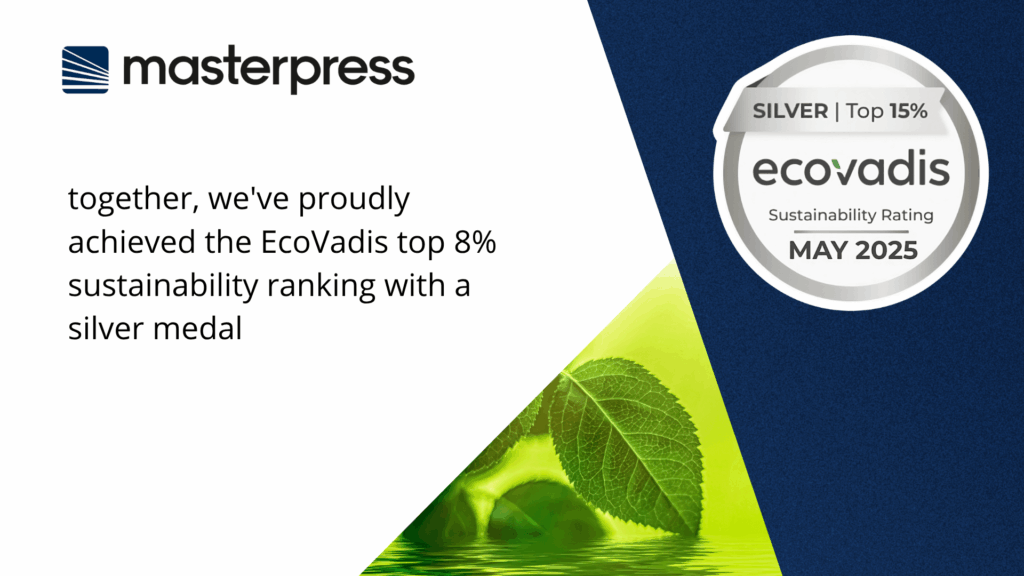
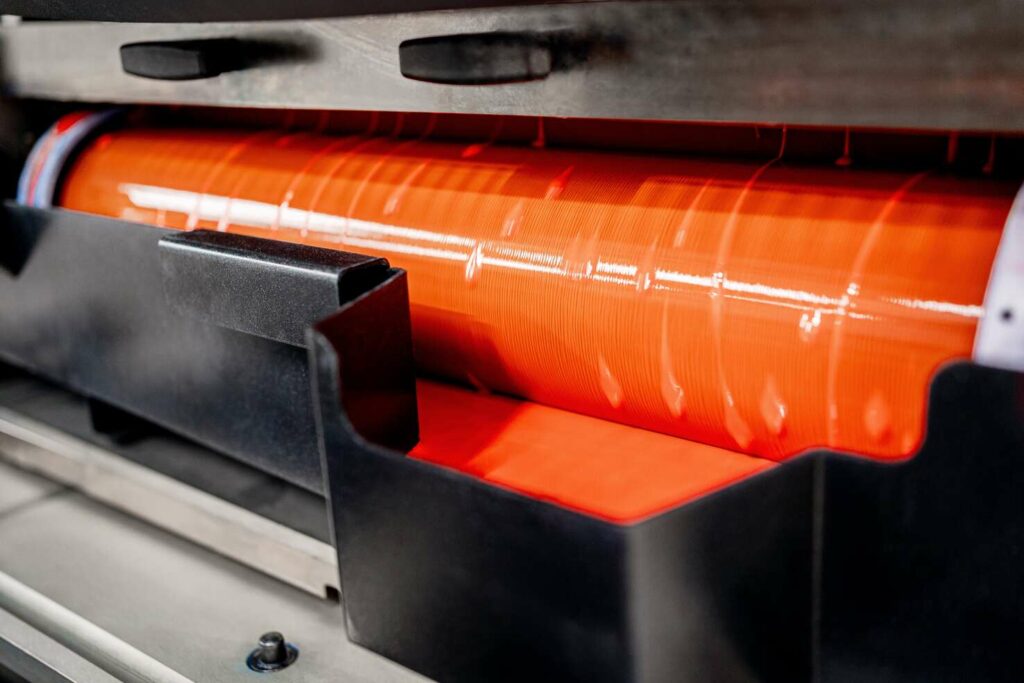
Siegwerk, one of the leading global providers of printing inks and coatings for packaging applications and labels, has announced the launch of its first full UV flexo deinking system for the European market: CIRKIT CLEARPRIME UV E02.
The new primer technology for non-food packaging applications offers a validated solution for safe and economic deinking of UV-printed self-adhesive labels (PSL). As a result, it improves the recyclability of labeled plastic packaging and enables the recovery of high-quality recyclates that are suitable for reuse in non-food packaging applications.
Although UV inks offer some advantageous properties for printing labels, they also pose a challenge for the subsequent recycling. “Depending on the substrate, UV inks are often very difficult to remove and can therefore lead to contaminations of recyclates, which significantly limits their further reuse,” explains Marc Larvor, Head of Technology Narrow EMEA at Siegwerk. “As a result, it is not surprising that UV-printed packaging has so far been considered as problematic in terms of a Circular Economy.” With CIRKIT CLEARPRIME UV E02, Siegwerk now offers a primer solution that specifically addresses this challenge. By enabling easy and safe deinking of UV-printed self-adhesive labels, it eliminates the need for prior label removal if the used plastics are compatible. “Such combined mechanical recycling of labels and plastic packaging can not only help to increase recycling rates, but also to save time and costs,” adds Marc Larvor. “Thereby, our new UV flexo deinking primer actively contributes to realize high-quality recyclates for circular waste streams.”
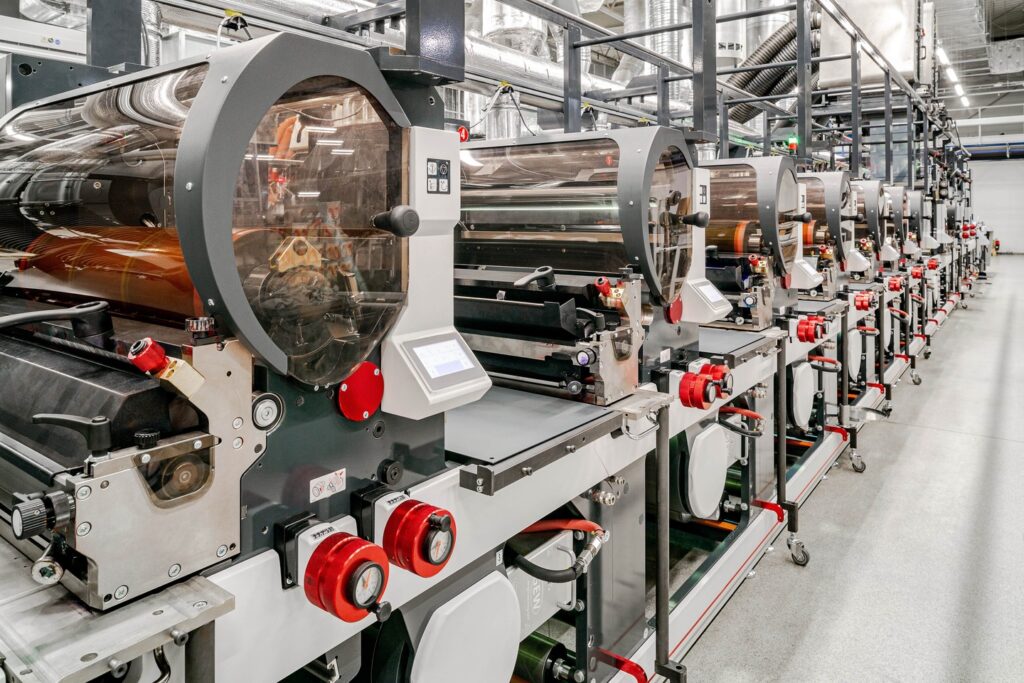
In a first field test with Masterpress Siegwerk’s new deinking primer has proven its effectiveness in all aspects. Masterpress’ research and development (R&D) experts used uncoated transparent or white pressure sensitive labels (PSL) made of PE85 and applied Siegwerk’s CIRKIT CLEARPRIME UV E02 followed by bleeding resistant UV flexo inks and an UV flexo OPV. First, the primer created a perfect adhesion between substrate and inks and later enabled full ink and varnish removal of the printed polyethylene (PE) film at standard deinking conditions based on the QT 507 washing protocol of the European PET Bottle Platform (EPBP). The primer layer also dissolved residue-free in the hot washing process and thus proved its ability to generate high-quality transparent or white recyclates, while the used non-bleeding ink formulations ensured a clean and reusable washing solution.
In-house laboratory tests at Masterpress and Siegwerk have shown great recyclate results underlining the effectiveness of the new deinking primer. “Consistently investing in its R&D laboratory, Masterpress brings state-of-the-art capabilities to test and trial new inks or materials before they enter the market. We are dedicated to advancing innovation within the shrink sleeve and self-adhesive label industry and are well positioned to help accelerate the commercialization of new, sustainable, recyclable products and materials on the market,” said Katarzyna Wasilewska, research and development manager at Masterpress. “Our tests confirmed an impressive recyclability of the UV-printed PE labels. Compared to other labels with no deinking technology, we could observe that contaminations of plastic recyclates due to discoloration could be massively reduced by using Siegwerk’s UV Deinking Primer.”
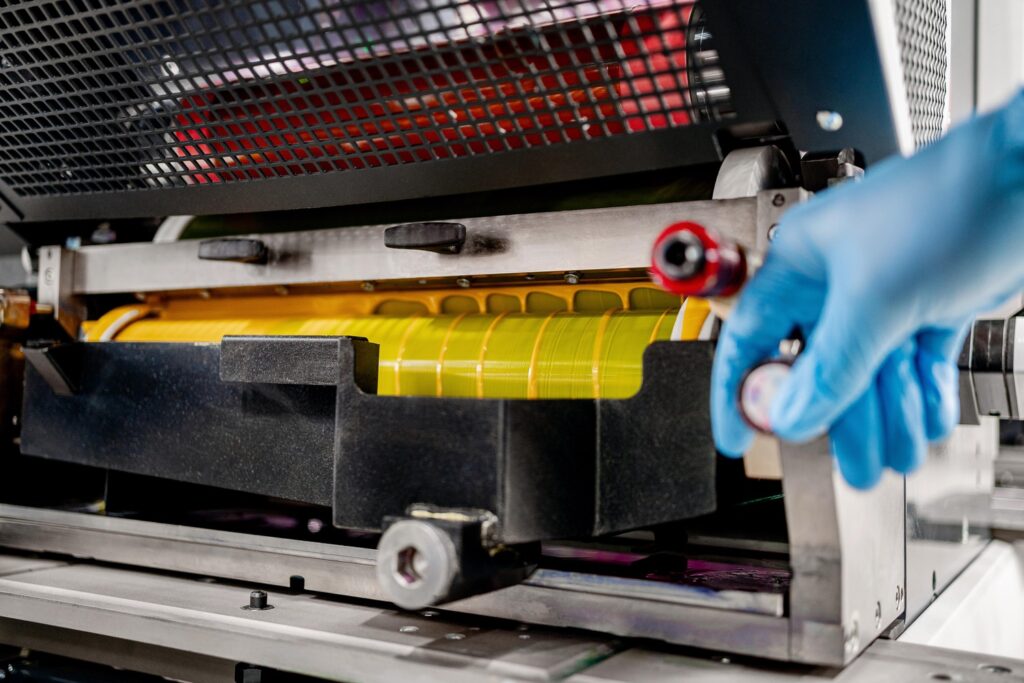
Therewith, CIRKIT CLEARPRIME UV E02 makes a significant contribution to improving the quality of recyclates and increasing their reusability. It works perfectly with the company’s established Sicura flexo series such as the non-low migration Sicura Flex 39-8 or the dual-curing series Sicura Flex Dual Cure. In addition, the new primer is compliant with different film materials and allows an inline printing of deinkable materials in a 100% UV-Flexo press setup keeping the complexity for users as low as possible. “With only three minutes, the new UV flexo primer even offers a deinking speed as fast as a water-based deinking primer making it to a great alternative for converters who are using a pure UV flexo press and are not able to process a water-based primer,” adds Katarzyna Wasilewska.
With CIRKIT CLEARPRIME UV E02, Siegwerk has not only added another functional coating solution to its CIRKIT product portfolio for packaging designs in the sense of a Circular Economy, but is also continuing to drive deinking as a new industry standard to further improve the recyclability of plastic packaging. Currently, the company’s portfolio of circular coatings already covers several water-based and solvent-based technologies for different applications, substrates, coating processes and performances: From barrier coatings against liquids, oil and grease, water vapor, oxygen, and UV light through heat seal and protection coatings to delamination and deinking primers.
To learn more about Siegwerk’s coating offering, please visit https://www.siegwerk.com/en/inks-coatings/coatings.html
To meet this challenge requires determination and collaboration along the value chain.
Gabriel Magdaleno, foreign sales director, Masterpress.
——–
According to Eurostat’s 2022 “Packaging Waste Statistics”, in 2021, a staggering 84.3 million tons of waste was generated in the European Union – in other words, an average of 188.7 kg per person and an increase over the previous year of 22.5%. All stakeholders have recognized the urgency of this situation and the corresponding need for an integrated, collaborative approach along all links in the value chain, especially in the context of the EU’s ambitious 2030 goals for packaging and packaging waste. Faced with similar increases in packaging waste for the foreseeable future, the printed decorative packaging industry finds itself in a pivotal role to address this challenge.
Revision of Directive 94/62/EC on Packaging and Packaging Waste (REFIT)
The European Parliament, during its plenary session, endorsed its stance on the proposed regulation and on December 18, 2023, the European Council adopted its position on the proposal. This general approach will set the stage for negotiations between the European Council and Parliament regarding the final form of the Packaging and Packaging Waste legislation. Both institutions must formally approve the final text, assumed to fall within the Belgian Presidency during the first half of 2024. The final text will likely include:
Waste Reduction Targets:
- 5% reduction by 2030
- 10% reduction by 2035
- 15% reduction by 2040
Exemptions for Member States:
- Allowances for exemptions under specific circumstances
- Potential exemptions for organic fruit and vegetables
Collection Targets for Single-Use Plastics:
- EU members to collect 90% of single-use plastic bottles and “metal” beverage containers annually by 2029
Deposit Return Systems:
- Mandatory implementation for the collection of single-use plastic bottles and metal beverage containers
Chemicals in Packaging:
- Measures to address chemicals hindering reuse or recycling
- Commission to collaborate with the European Chemicals Agency, aiming for a report by 2026
Reuse and Refill Targets:
- Varied rules for different product categories
- Exemptions for cardboard
- Excluding wine from the regulations
Industry’s opportunity to lead with innovative technologies that reduce environmental impact
The packaging and printing industry is ready and able to make a significant contribution to reduce the environmental impact of packaging and work with and across industry. By leveraging advanced technologies and strategic approaches, the industry can effectively respond to the growing demands for environmental responsibility and align with the goals of the European Union’s Packaging and Packaging Waste Directive (PPWD).
For example, some of the actions the packaging and printing industry can take to address this challenge:
- The integration of technologies like digital watermarking and switching from UV cured inks to LED inks signifies a leap towards more environmentally responsible practices. Digital watermarking, for instance, streamlines the recycling process by improving the sorting of materials, thereby aligning with the objectives of the EU Directive that emphasizes recycling and waste reduction. The transition to LED inks reflects an industry-wide commitment to more sustainable printing processes by reducing energy consumption, emissions of hazardous materials, waste generation, and air pollution, resonating with the Directive’s push for sustainable practices.
- Material choices in packaging are becoming increasingly crucial. The industry’s exploration of paper versus plastic, and other materials like glass, wood, metal, and bioplastics, is a testament to the search for sustainable and recyclable solutions. This exploration is not just about choosing one material over another; it’s about understanding the lifecycle of each material and how they can complement each other in a circular economy. This approach aligns with the Directive’s focus on reducing waste and enhancing recyclability.
- Consumer engagement through informative and engaging packaging design is another key area. The industry is moving towards designs that not only communicate recycling information clearly but also encourage reuse. This aligns with the aim to involve consumers more actively in waste reduction efforts. The shift in labelling strategies to promote reuse over brand dominance reflects a deeper understanding of the role consumers play in the product lifecycle.
The future of sustainable packaging lies in embracing a diverse range of materials and technologies, each playing a role in reducing environmental impact. As the industry moves forward, it will be essential to balance innovation with practicality, ensuring that new solutions are not only environmentally friendly but also feasible and effective in real-world applications.
Impact of Labels and Films
In the dynamic landscape of the European Fast-Moving Consumer Goods (FMCG) packaging sector, producers are increasingly focused on high-quality labels and innovative printed decorative packaging solutions. These advancements are not just about aesthetics; they encompass designs, colours, and functionality that ensure safety, enhance desirability, and offer robust and unique brand representation.
Labels and films, though smaller in size compared to the overall packaging, play a significant role in the packaging waste stream. They are integral to product branding and information dissemination but pose unique recycling challenges. Labels, for instance, can be made from a variety of materials, including paper, plastic, and foil, often with adhesive backings that contaminate recycling streams. Films, used for wrapping and sealing products, vary widely in material composition, adding another layer of complexity to the recycling process.
As we look towards 2030, it’s imperative to acknowledge the honest role and potential of the labelling, films, and packaging industry in spearheading more environmentally friendly innovations. A key aspect of this evolution involves the reduction of packaging weight (lightweight) and the optimization of packaging for specific products, such as the use of thinner films. Downgauging to thinner materials not only reduces the quantity of material but also minimizes waste. At the same time, we should also look to using a greater proportion of recycled materials, reducing the use of virgin plastic. For example, at Masterpress we are currently running feasibility tests for plastic sleeve labels with 50% recycled content. Additionally, the shift towards recyclable materials has been gaining momentum, with companies exploring new substrates and mono-material packaging solutions that can be easily processed in recycling facilities.
The TINE 300g Dairy Cup Sleeve
Made for Berry Superfos Lidköping and produced by Masterpress, encompasses the company’s commitment to sustainable packaging and reflects “designed-for-recycling” standards set by RecyClass. The packaging introduces a low-density polyolefin shrink sleeve material creating a “mono-material-like” solution that facilitates proper identification and recycling of the cups in the correct polymer stream. Additionally, this sleeve uses thinner, 45µ polyolefin, effectively reducing the amount of material for a lower carbon footprint and more environmentally friendly packaging solutions. The design helps to ensure the cups are correctly recycled, lessening environmental impact and pushing the packaging industry towards more “good-for-recycling” solutions. This design demonstrates how thoughtful material selection and design can result in a fully recyclable product without compromising functionality or aesthetic appeal.
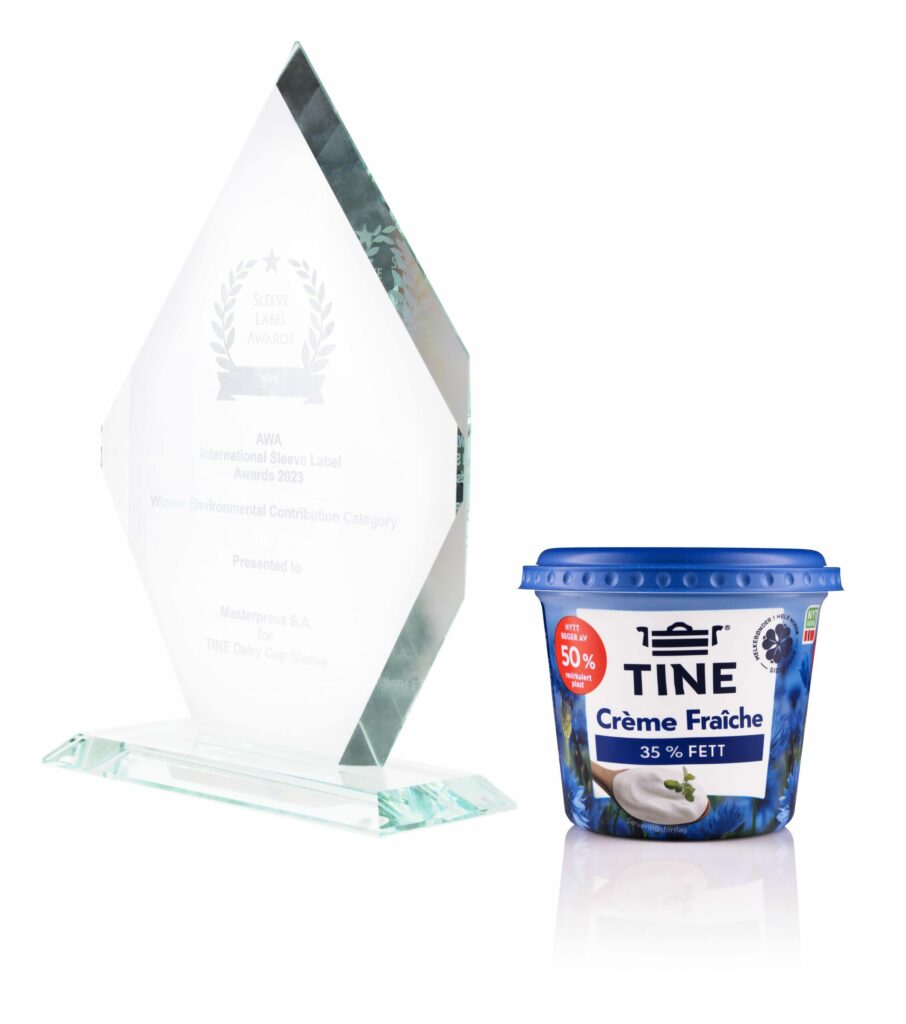
The role of collaboration and the responsibility of all involved parties
However, implementing new technologies alone is not enough to meet the ambitious 2030 goals. Coordination along the value chain is essential for successfully implementing technologies that align with the three Rs (Reduce, Reuse, Recycle) challenge set by the PPWD by 2030. This holistic approach demands an integration of environmental considerations, brand marketing strategies and consumer guidance focused on a more sustainable future. Designing products and packaging that not only appeal to conscientious consumers but also enhance brand value is crucial. Furthermore, these designs must be user-friendly, ensuring ease of use in terms of the three Rs. The ultimate goal is to meet consumer needs by offering products that are not only functional but also environmentally responsible, thereby fulfilling the PPWD’s objectives and contributing to a more sustainable future.
To meet the ambitious goals outlined by the PPWD will therefore require a re-evaluation of the typical “Extended Producer Responsibility” (EPR) doctrine. The EPR has traditionally placed the onus on producers to manage the environmental impacts of their products throughout their life cycle. However, to effectively address the challenges of the three Rs, a more inclusive approach is needed. This calls for the value chain, including regulators and consumers to equally share the responsibility and costs.
Such an approach recognizes that every participant in the product lifecycle – from packaging industries and labelling companies to transportation, retail, consumers, and recycling sectors – plays a vital role in the environmental footprint of products. Each and every link in the value chain should contribute to the solutions and innovations required.
Europe, while leading in regulatory changes like the PPWD, is not alone in this journey. Globally, various regions are implementing similar regulatory changes, emphasizing the importance of sustainable practices across the entire value chain. Europe, with its progressive policies, can set a precedent and lead the world in achieving a more sustainable and environmentally responsible industry standard. By citing global examples and learning from them, Europe can refine its strategies, encouraging a more collaborative and holistic approach to environmental responsibility.
Conclusions
Achieving the ambitious 2030 goals set by the PPWD hinges on the development of flexible solutions that can adapt to diverse regulatory, technological, and cultural needs, both now and in the future. A more nuanced strategy is required, one that considers the unique regulatory landscapes, ongoing technological developments, and cultural practices of different regions.
To successfully navigate these complexities, shared responsibility across the entire value chain is imperative. This means moving beyond the traditional EPR doctrine and fostering collaboration among all stakeholders, including manufacturers, retailers, consumers, and recycling sectors while simultaneously ensuring the engagement of regulators and consumers.
The path to meeting the PPWD’s 2030 objectives is multifaceted, requiring a harmonious blend of shared responsibility, collaborative effort, and relentless innovation. By embracing these principles and understanding that new innovations will continue to advance recycling, it is possible to create a sustainable future that accommodates a variety of needs and paves the way for global environmental stewardship.
We are pleased to announce that Masterpress has been awarded the esteemed EcoVadis Silver certification. This recognition places us among the elite 15% of companies worldwide that meet stringent sustainability criteria.
This accomplishment underscores our dedication to continuous improvement and advancement. Transitioning from bronze to silver reflects our ongoing pursuit of enhancing our environmental performance and upholding responsible business practices.
As we move forward, we remain focused on driving positive change and setting new standards for sustainability within our industry. Thank you for your continued support as we pursue a more sustainable future.
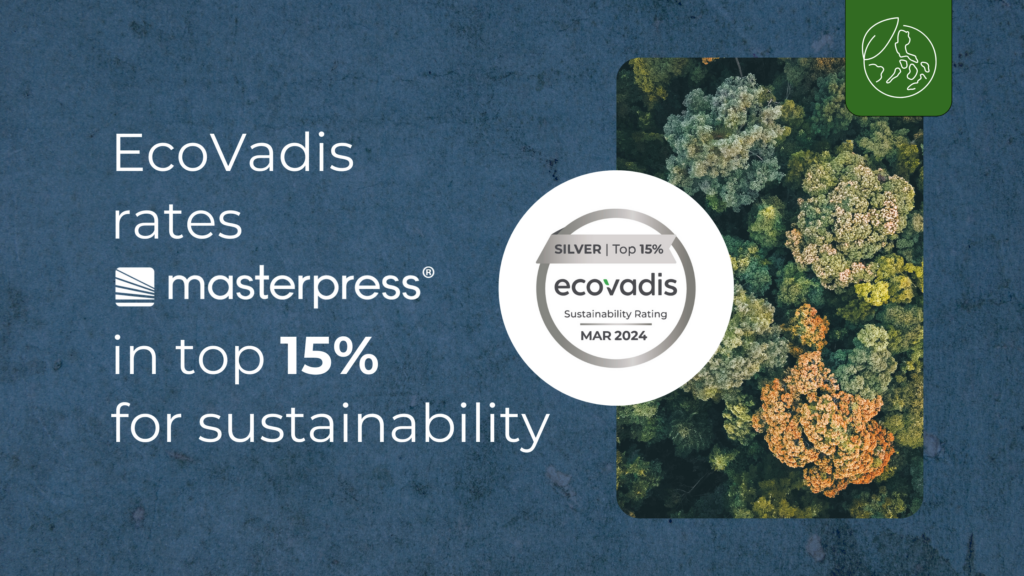
We’re thrilled to announce that Masterpress has been recognized with the award of “Best Employer 2023” by the Polish Chapter of the Social Responsibility Leaders Program. This recognition reflects our commitment to developing and building good relationships with employees and creating a workplace that values the knowledgeable contributions and printed packaging expertise of ours.
“We are very proud to receive this award, confirming that our efforts to create a friendly, open, and diverse workplace conducive to employee development are being noticed and appreciated. From the beginning of the company, our employees have been our greatest asset. I hope each of them knows that they can grow with us, talk openly with us and fulfill their professional ambitions” – said Waldemar Zdrodowski, CEO of Masterpress in an article for Business Forum.
At Masterpress, our employees are at the heart of everything we do. We believe in investing in their growth, providing professional support, and creating an environment that encourages creativity and inventiveness. Our success is a result of their dedication, and this recognition reaffirms our commitment to their well-being and professional development.
Read more (PL):
We are glad to announce that Masterpress received the RecyClasss Letter of Compatibility “design for recycling” when using our shrink sleeve solution on dairy cups. Our sleeve label applied onto a PP cup, has been awarded a positive recyclability assessment from the RecyClass association.
We submitted our packaging solution for assessment by Suez.circpack®. The tests were conducted according to RecyClass methodology.
Following the performed tests, Masterpress was granted a “Letter of Conformity”, confirming that the assessed product met the requirements of compatibility with readily available sorting and recycling technologies commonly used at industrial scale in the recycling sector in Europe. It means that during the recycling process the cup will be directed straight to the rigid polypropylene fraction recovery stream, without the need of prior removal of the sleeve.
The solution developed by Masterpress is environmentally friendly and fits well with the principles of circular economy.
We are proud to announce that as of June, 2021, Masterpress has had its own apiary of 6 hives. The bee houses have been located on an undeveloped, grassy piece of the company’s grounds, several dozen meters from Masterpress’ production facility. The location of the hives ensures the safety of employees on the one hand and on the other hand will guarantee that insects will not be disturbed. Additionally, a board with information on the apiary, bees and safety rules will be placed in the vicinity. The hives have been provided by local beekeeper, who will also take care of the bee families.
Urban beekeeping has been undergoing a dynamic development in recent years. And that is very good, as bees are a crucial element of our whole ecosystem. The accumulated experience and scientific research have proven that urban environment excellently suits honey bees. Through an intensive pollination of flowers the bees contribute to improving the urban flora, trees in particular. Insects that live in urban areas are not threatened by the harmful effects of pesticides and other chemical sprays, which is often the case in rural areas. They also benefit from the air temperature, which is usually slightly higher in cities. The city bees do not have to fiercely compete with other insects for access to flower nectar, which translates into relatively high honey production and other apiculture products.
Masterpress’ local beekeeping initiative is an expression of our employees’ concern for the natural environment and, at the same time, an effect of the company’s wide perspective on the sustainable development strategy, which perfectly fits into the company’s value system. This way we also show that even such localized, small-scale positive initiatives can have a greater effect on the society at large.
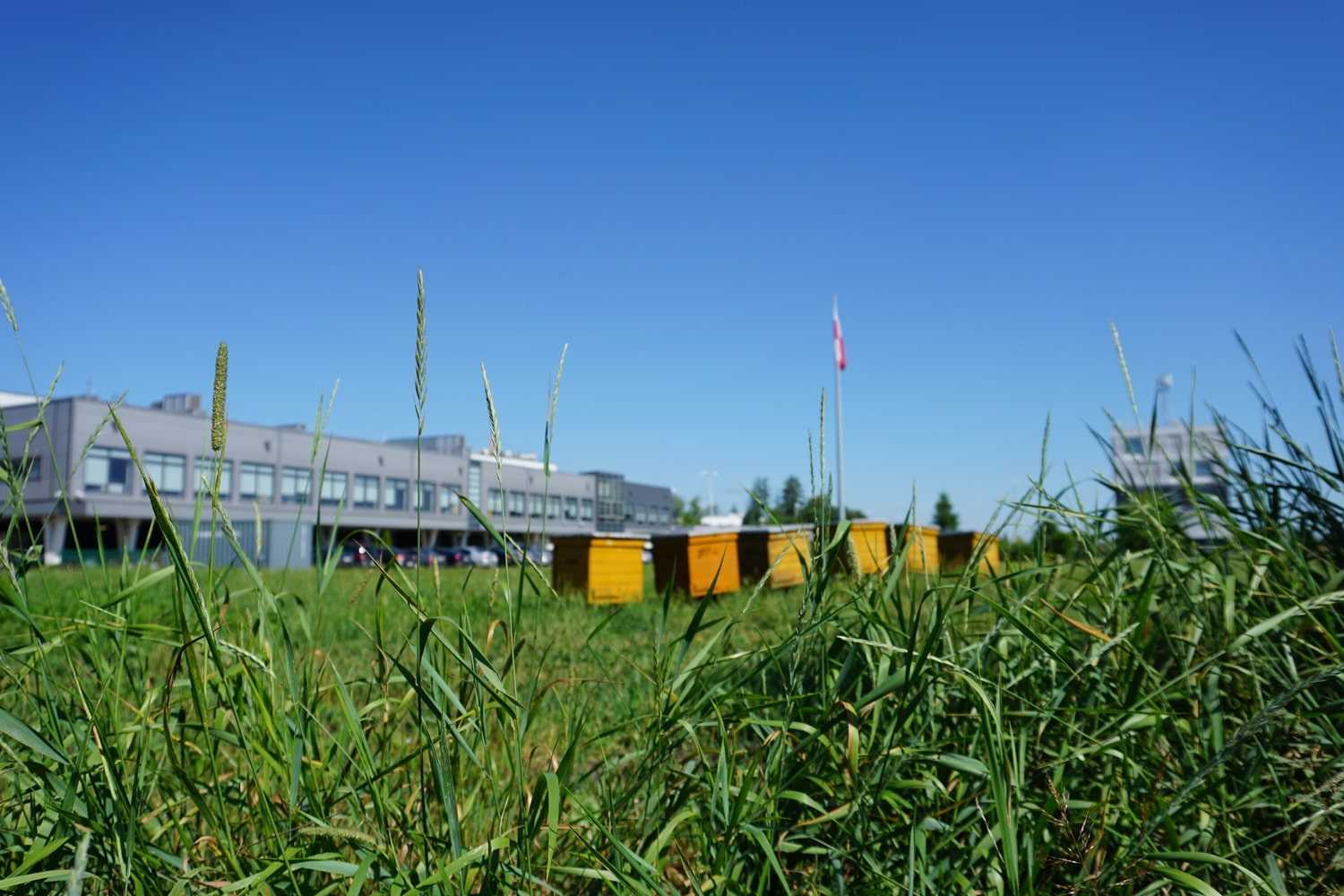

We are very pleased to announce that Masterpress has received the FSC® Chain of Custody certificate. The certificate applies to the purchase of unprinted self-adhesive paper labels which have been certified in the „FSC Mix” or „FSC Recycled” category and the sale of already printed certified labels.
Masterpress has been consistently carrying out a sustainable development strategy for many years based on the principles of corporate social and environmental responsibility. We are implementing such principles in our day-to-day work, e.g., by rationally managing the use of natural resources, applying modern technological solutions which facilitate more efficient consumption of water and energy, or reducing harmful emissions to the environment. Masterpress’ decision to undergo the demanding FSC® certification procedure is another step within our sustainable development strategy.
Our FSC® certificate translates to practical benefits for Masterpress, our business partners, as well as the natural environment. Above all, it ensures that FSC®-certified self-adhesive labels are made of raw materials legally sourced and processed in a supply chain that complies with FSC standards. This means that the paper in our labels has been made either from wood that comes from responsibly managed forests or from recycled material. This is our way of taking care of woodland ecosystems and protecting the vitality and biological resources of forested areas. In doing so, we contribute to preventing adverse climate change on our planet.
About FSC®
FSC® (Forest Stewardship Council®) is an international non-profit organization that promotes responsible management for the world’s forests. It has also established a system for the certification of forests and wood and paper products. The FSC® system is one of the most reliable global forest certification systems, officially recognized by world’s leading environmental organizations.
Masterpress is a printed packaging solution provider to many international and regional brands, and we are committed to helping our customers solve their sustainability in packaging challenges.
In 2019, Masterpress developed a decorated PP cup solution designed for recycling and validated the development externally last year with TOMRA Germany. The test was conducted to verify that cups with Masterpress shrink sleeves would be identified as a mono-material rigid PP solution, a critical step to properly sort the plastic containers into the appropriate recycling stream. The test was performed on the TOMRA AUTOSORT machine with a belt operating speed 3 m / s. According to the TOMRA report, Masterpress shrink sleeves on a PP cup is detected as mono-material rigid PP.
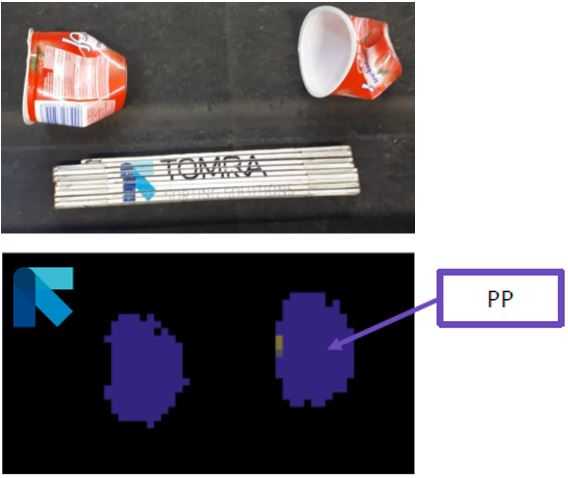
Pic. TOMRA tests result (source TR_20200127_TOMRA_Masterpress)
Contact us to request the full report or to learn about our complete range of sustainable packaging solutions!
Under the auspices of AIM, the European Brands Association, over 85 companies and organizations from the complete packaging value chain have joined forces with the ambitious goal to assess whether a pioneering digital technology can enable better sorting and higher-quality recycling rates for packaging in the EU, to drive a truly circular economy. Masterpress is proud to be a member of this consortium.
One of the biggest challenges in achieving a truly circular economy in packaging is to better recover and sort post-consumer waste by accurately identifying the packaging by type, resulting in higher quality and increased quantities of recycled materials. Digital watermarks may have the potential to revolutionize how packaging is sorted in waste management systems, as it opens new possibilities which are currently not possible with other existing technologies. Under Ellen MacArther Foundation’s the New Plastics Economy program, digital watermarks were found to be the most promising technology, gathering support among the majority of stakeholders by passing a basic proof of concept on a test sorting line. The “HolyGrail 2.0” project is the next phase in as a cross-value chain initiative under which this development will take place on a much greater scale and scope. This will include the launch of an industrial pilot in order to prove the viability of digital watermarks technologies for more accurate sorting of packaging and higher-quality recycling, as well as the business case at large scale.
Digital watermarks are imperceptible codes, about the size of a postage stamp, covering the surface of a consumer goods packaging. They can carry a wide range of attributes such as manufacturer such as SKU, type of plastics used and composition for multilayer objects, food vs. non-food usage, etc. The goal is that once the packaging has entered into a waste sorting facility, the digital watermark would be detected and decoded by a standard high resolution camera on the sorting line, which then – based on the transferred attributes – is able to sort the packaging into corresponding streams. The result would be better and more accurate sorting streams therefore providing higher quality recyclates, adding benefit to the entire packaging value chain. Digital watermarks also have the potential to be used in other areas such as consumer engagement, supply chain visibility, and retail operations.
